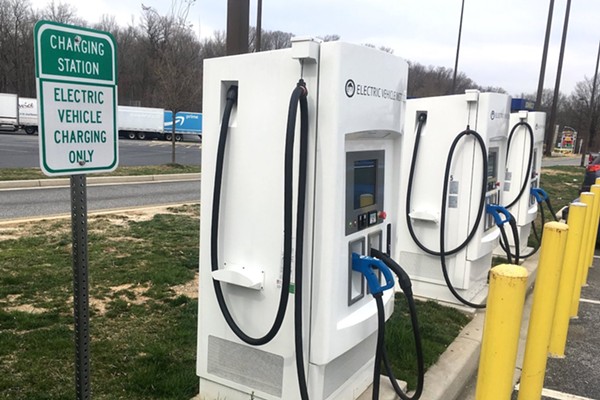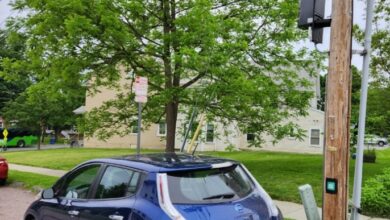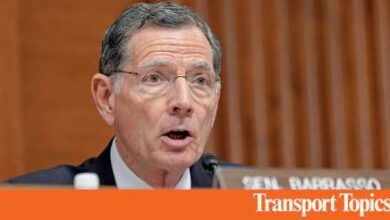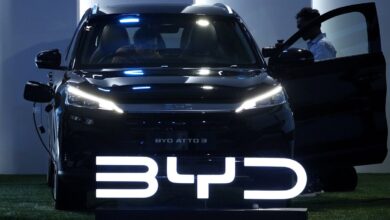Cleveland Ranks 4th Lowest Among Top U.S. Cities for Electric Vehicle Adoption | Cleveland

As far as helping to reach the U.S.’s idealistic climate goals come 2050, it seems that Cleveland has a fair share of work left to be done.
Especially when it comes to transportation and tapping into the growing market of electric vehicles: Only about 3 percent of all cars, trucks and SUVs registered across the city last year were those that run on electricity, not fossil fuels, a report last month from S&P Global Mobility found.
That stat puts Cleveland at the 47th spot out of the top 50 U.S. cities with registered EVs, notches above Detroit (also 3 percent), Buffalo (2 percent) and McAllen, Texas (about 1 percent).
The top spots for EVs and their requisite charging stations overlap with higher GDPs, warmer climates and longer commutes. In San Jose, Cali., 40 percent of registrations last year were EVs. In San Francisco, 22 percent. And Seattle, 22 percent.
As for explanations for the city’s relatively low buy-in, reasons aren’t too distant. New EVs are noticeably more expensive than their gas-guzzling predecessors, with the majority of latest model Teslas, Volkswagens and Audis costing over $50,000. There’s currently no model on the road that runs less that $35,000.
Also, as Clean Energy Institute director Jack Brouwer told the New York Times in January, our Lake Effect winter isn’t helping.
“You cannot charge a battery as fast or discharge a battery as fast if it’s cold,” he said. “There’s no physical way of getting around.”
With Mayor Justin Bibb’s position as chair of the Climate Mayors, and President Biden oft-reminding the world of the country’s high-aiming carbon elimination goals by 2050, governmental ambitions will have to shine on lagging cities if they are to actually have an all-hands-on-deck push.
EV incentives, like the federal tax credit reimbursement, are proven to boost sales—like for last year’s EV sales record—but recent decisions at the White House to bar foreign models, mostly those made in China, may curtail that spike. In January, due to stipulations in Biden’s Inflation Reduction Act, U.S. consumers can only earn tax perks on mostly American-made vehicles. (And less than half carry the $7,500 incentive.)
Other perks abound for replacing those internal combustion engines with lithium batteries. EVs, besides being less noisy, allow for cleaner air in a city. (Though lithium extraction is not a clean procedure.) A 2035 Report 2.0 from U.C. Berkeley predicted that a majorly EV market could save 150,000 lives lost to cardiovascular or respiratory diseases by 2050.
In Cleveland, where construction of a new vehicle charging station warrants a mayor’s visit and makes news, the low number of EVs is plainly obvious.
Charging stations exist, but sit mostly out of the public eye. There are three at the Ritz/Carlton, six at the InterContinental on Carnegie Ave., three stations at the Great Lakes Science Center, and a Tesla Supercharger at the Shops at Church Square. And a new station apparently opening up at Public Square later this year.
Charging a Tesla, by far the most popular EV by miles, isn’t cheap but better fiscally-speaking that filling up at the pump. In Cleveland, it costs about $28 for a full charge—good for 200 miles or so—at about $0.47 per kilowatt hour.
Compare that to the average cost of $49 for filling up a 12-gallon gas tank.
Subscribe to Cleveland Scene newsletters.
Follow us: Apple News | Google News | NewsBreak | Reddit | Instagram | Facebook | Twitter | Or sign up for our RSS Feed



